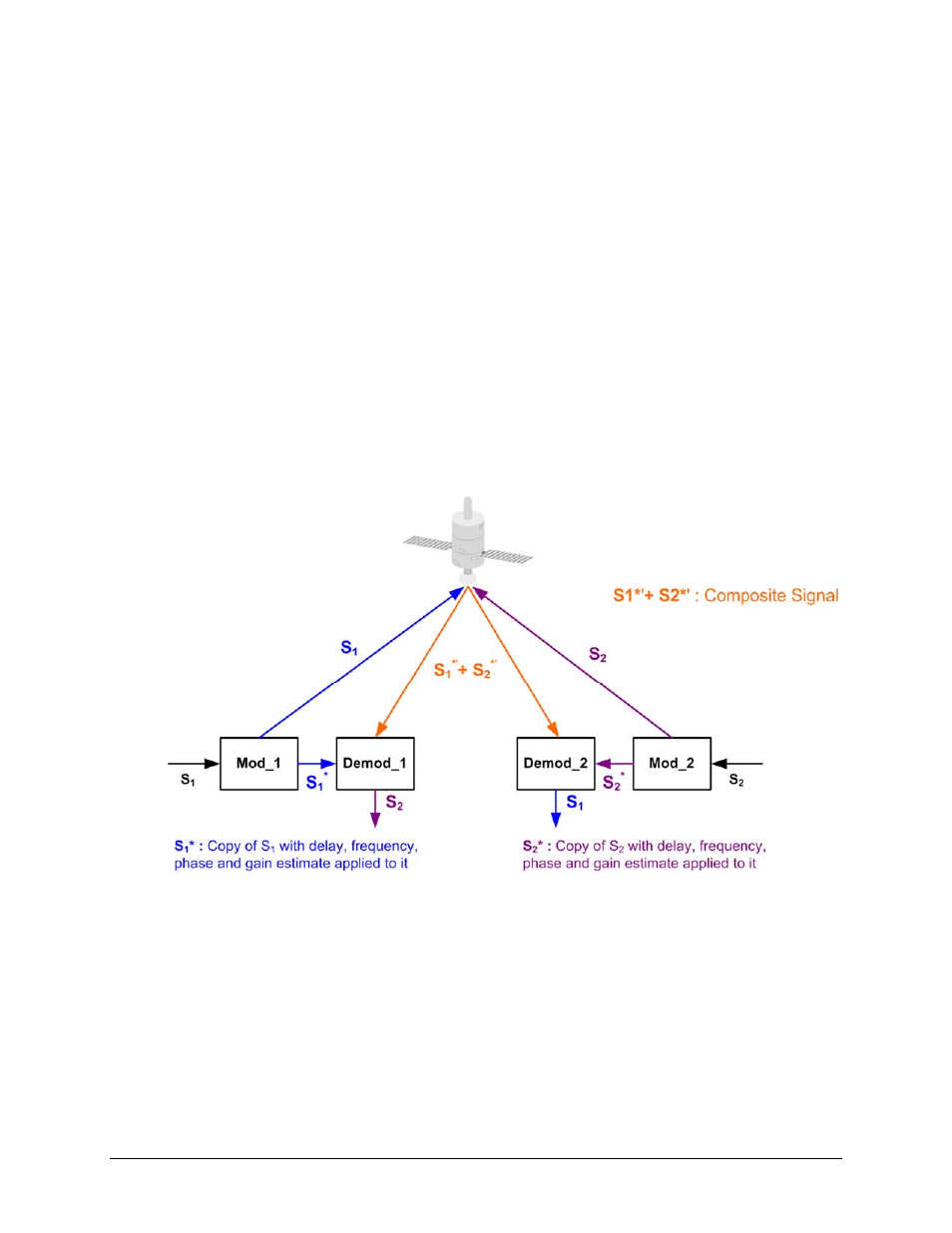Comtech EF Data CDM-750 User Manual
Page 266

CDM-750 Advanced High-Speed Trunking Modem
Revision 2
Appendix D
MN-CDM750
D–8
D.4.1 DoubleTalk Carrier-in-Carrier Cancellation Process
The state‐of‐the‐art signal processing technology employed via CnC continually estimates and
tracks all parametric differences between the local uplink signal and its image within the
downlink. Through advanced adaptive filtering and phase locked loop implementations, it
dynamically compensates for these differences by appropriately adjusting the delay, frequency,
phase and amplitude of the sampled uplink signal, resulting in excellent cancellation
performance.
When a conventional full duplex satellite connection is established between two sites, separate
satellite channels are allocated for each direction. If both directions transmitted on the same
channel, each side would normally find it impossible to extract the desired signal from the
aggregate due to interference originating from its local modulator. However since this
interference is produced locally, it is possible to estimate and remove its influence prior to
demodulation of the data transmitted from the remote location.
For the CnC cancellation, it is necessary to provide each demodulator with a copy of its local
modulator’s output.
Figure D-5. DoubleTalk Carrier-in-Carrier Signals
Referring to Figure D‐5: Modem 1 and Modem 2 transmit signals S1 and S2 respectively. The
satellite receives, translates, and retransmits the composite signal. The composite downlink
signal S1* + S2* is received at Modem 1 and Modem 2. The modem’s returned image of the
uplink signal (not including the desired carrier) differs from the originally‐transmitted signal
primarily in terms of phase, frequency, and delay offsets.
Referring to Figure D‐6: For round trip delay estimation, a search algorithm is utilized that
correlates the received satellite signal to a stored copy of the local modulator’s transmitted
